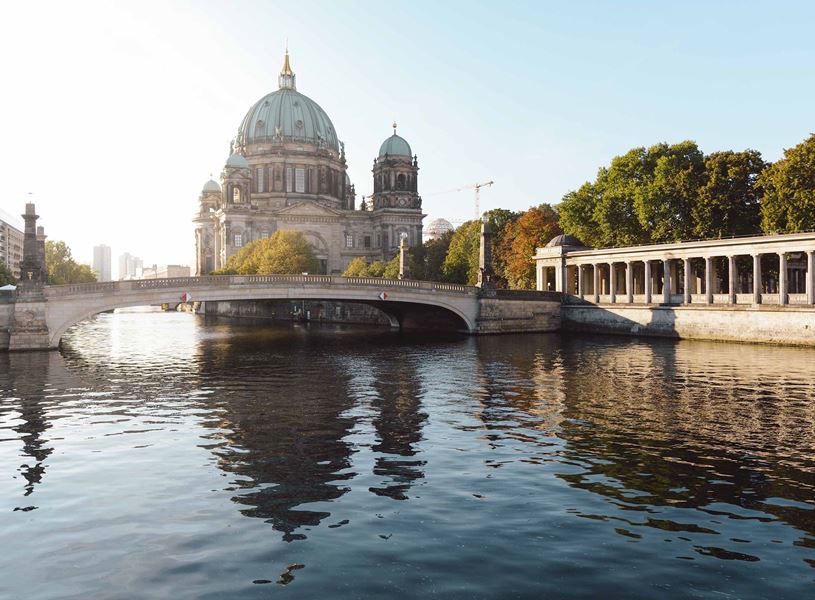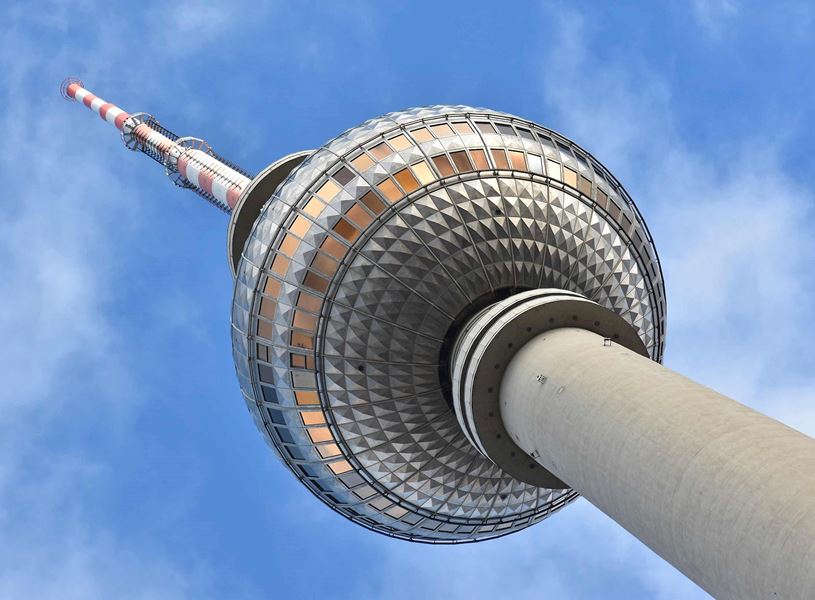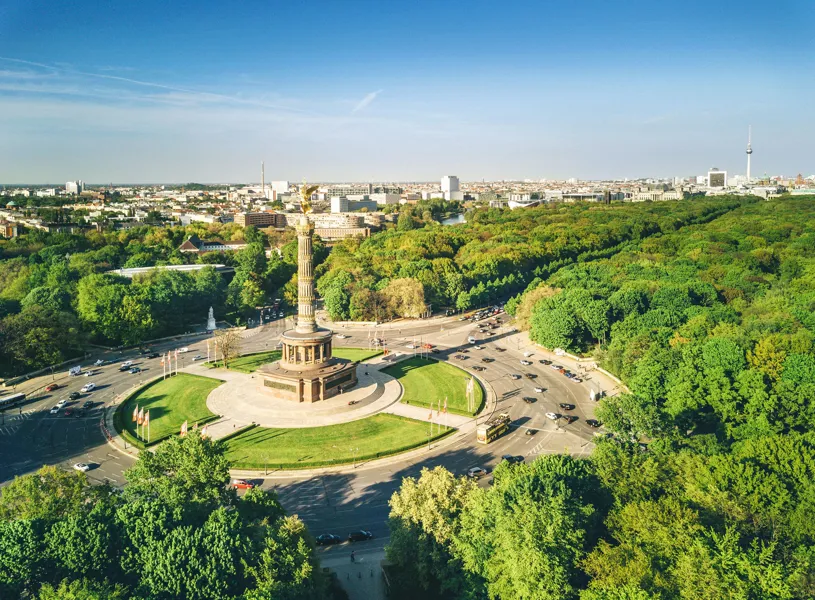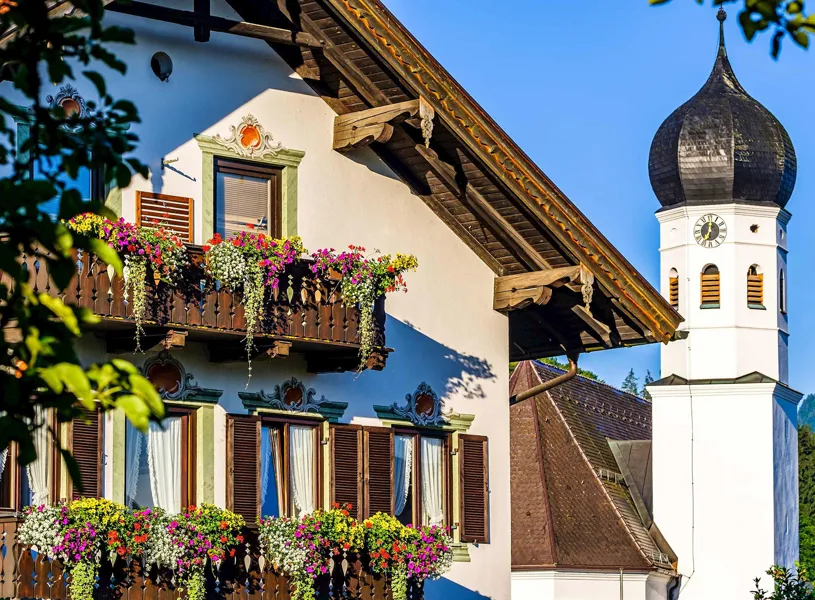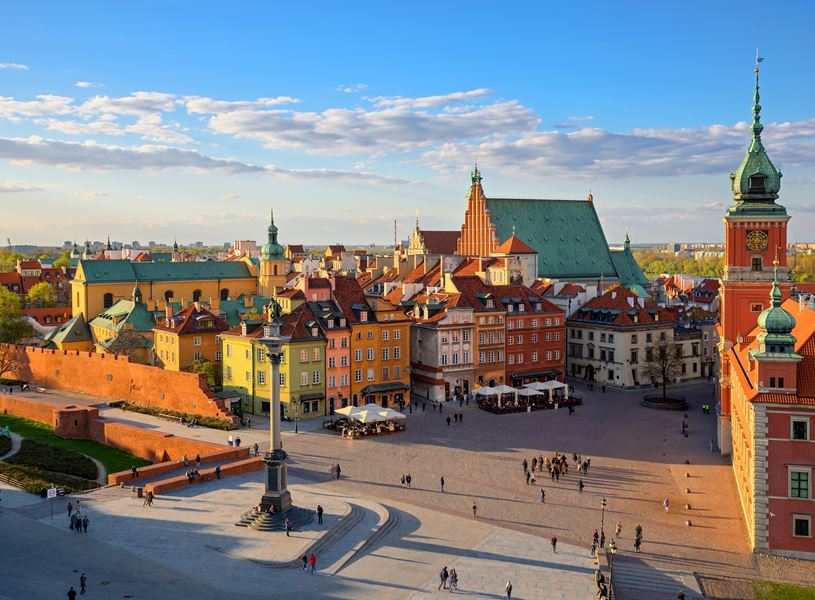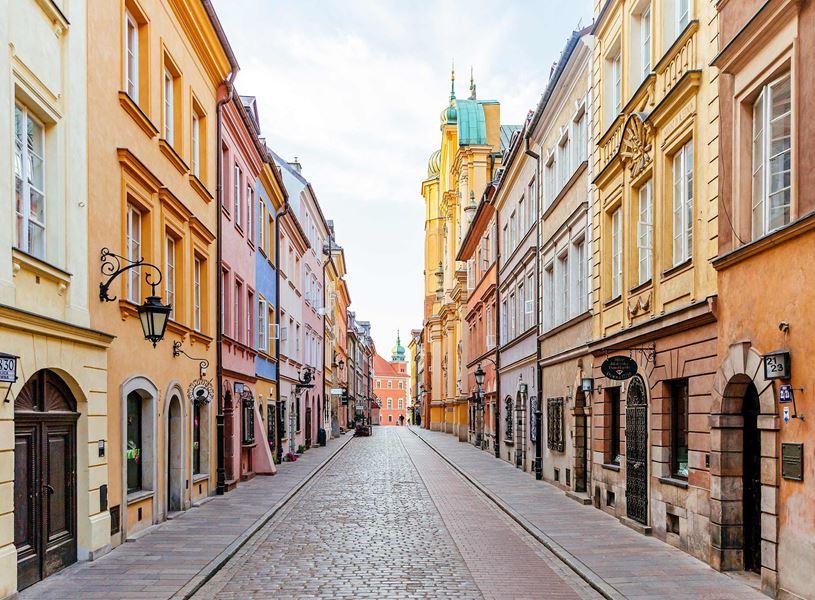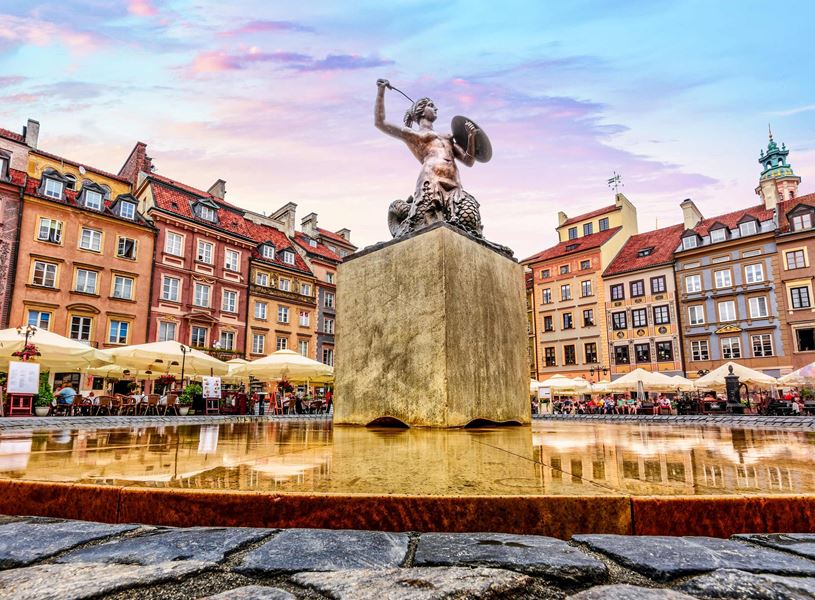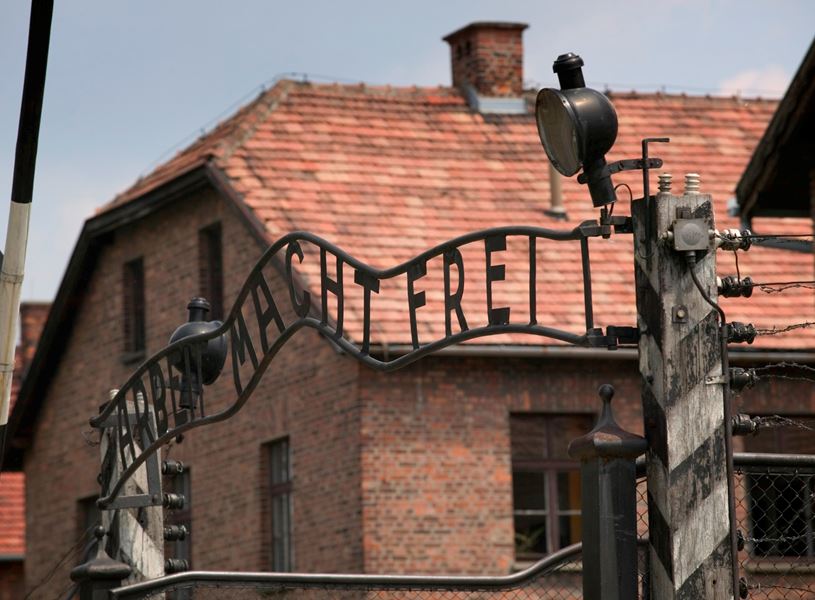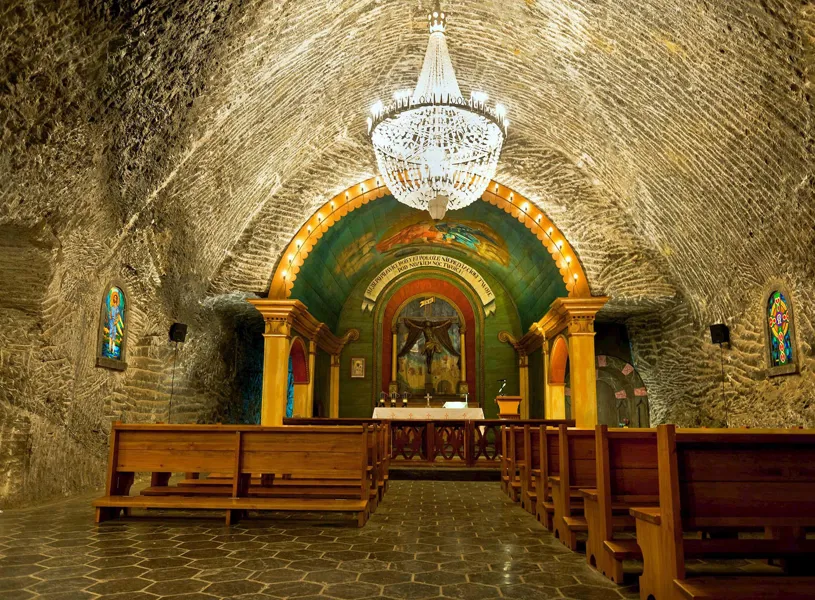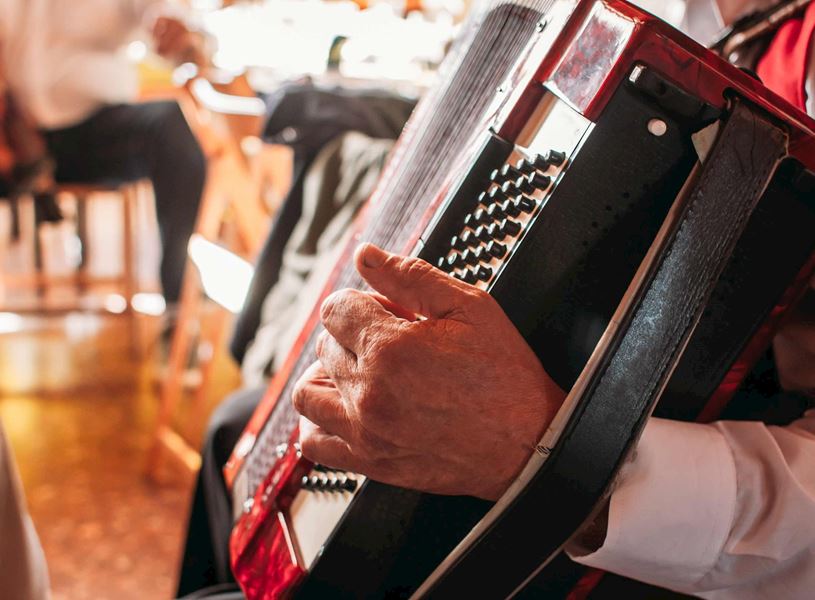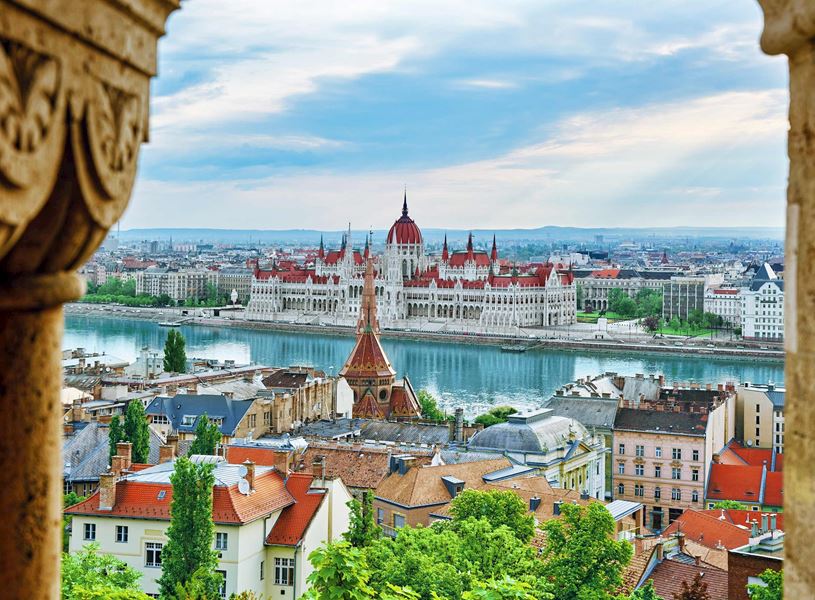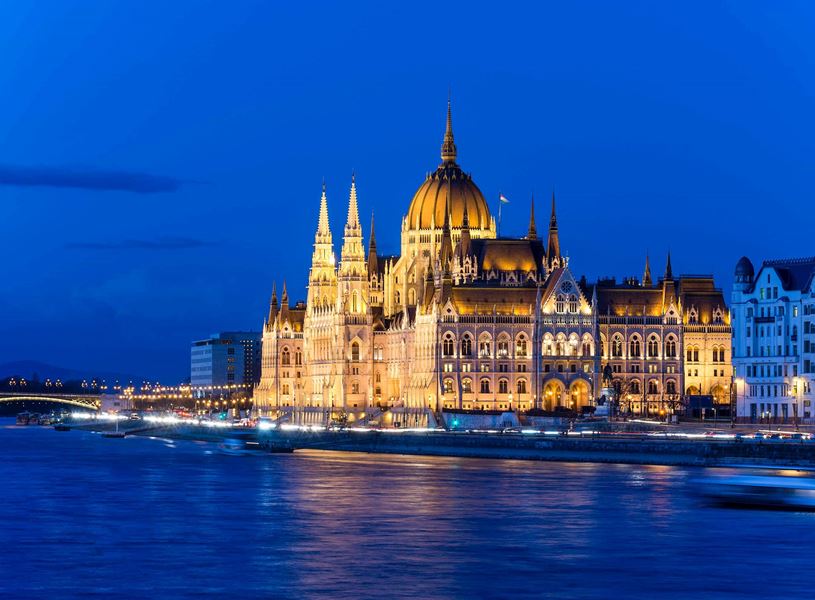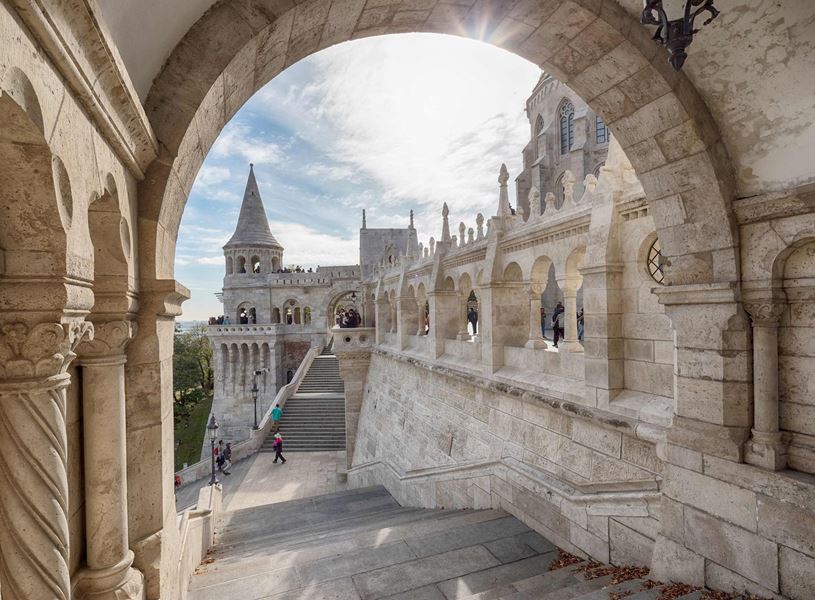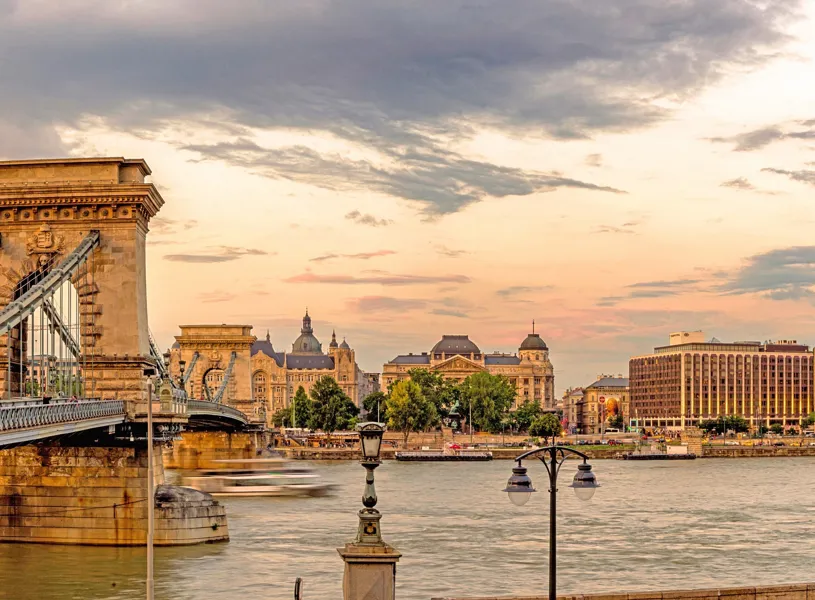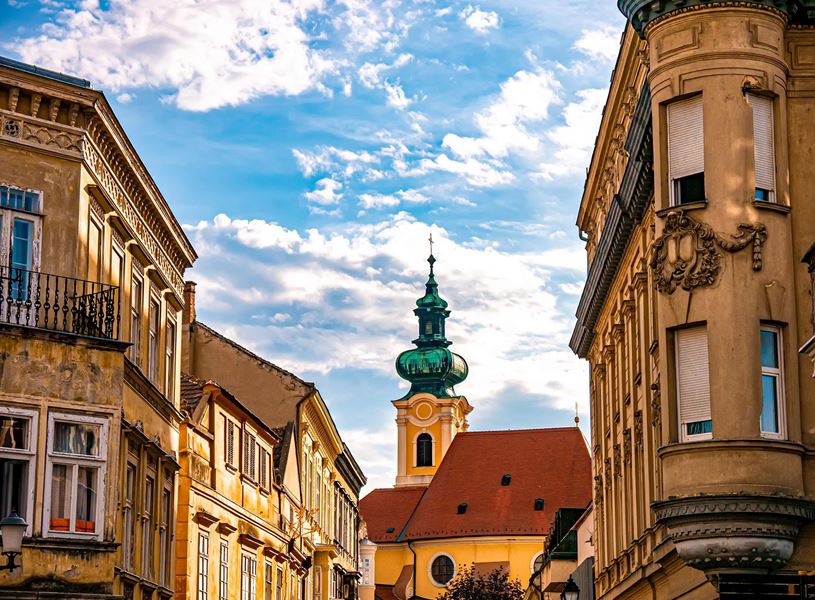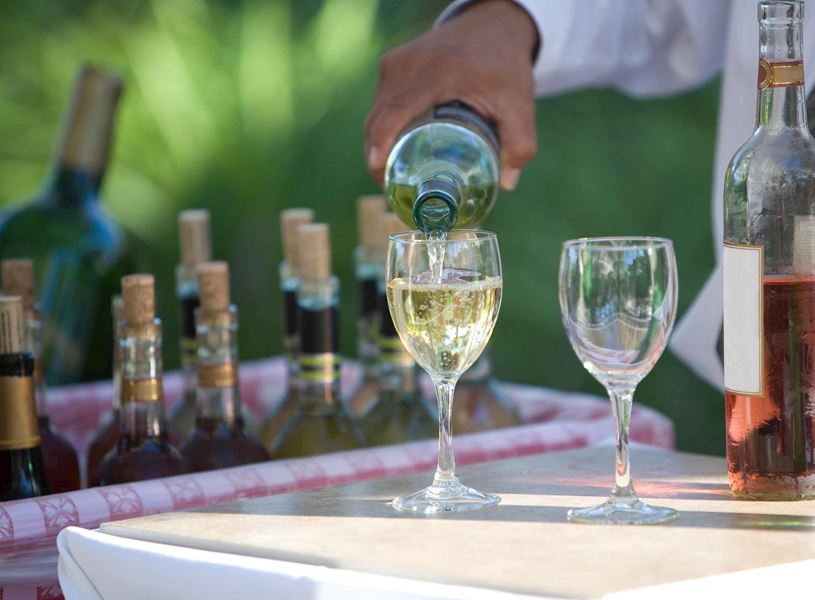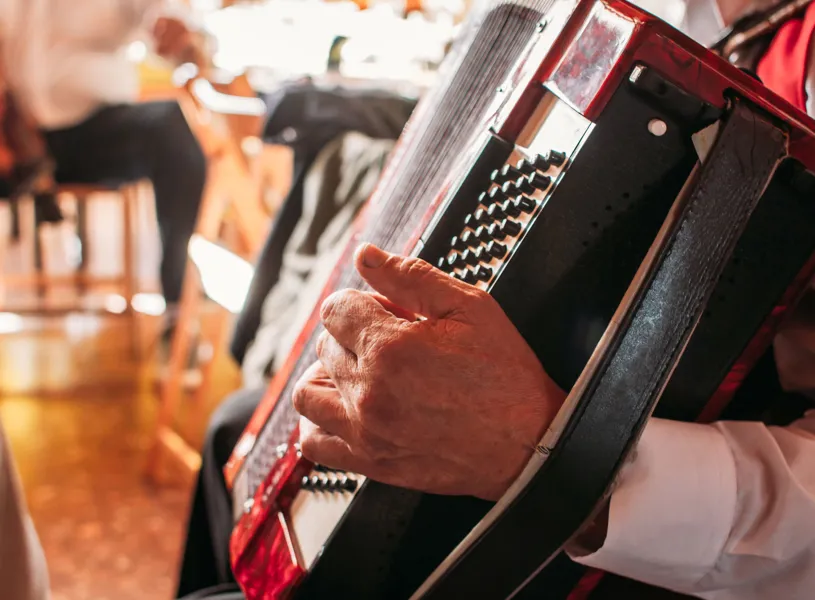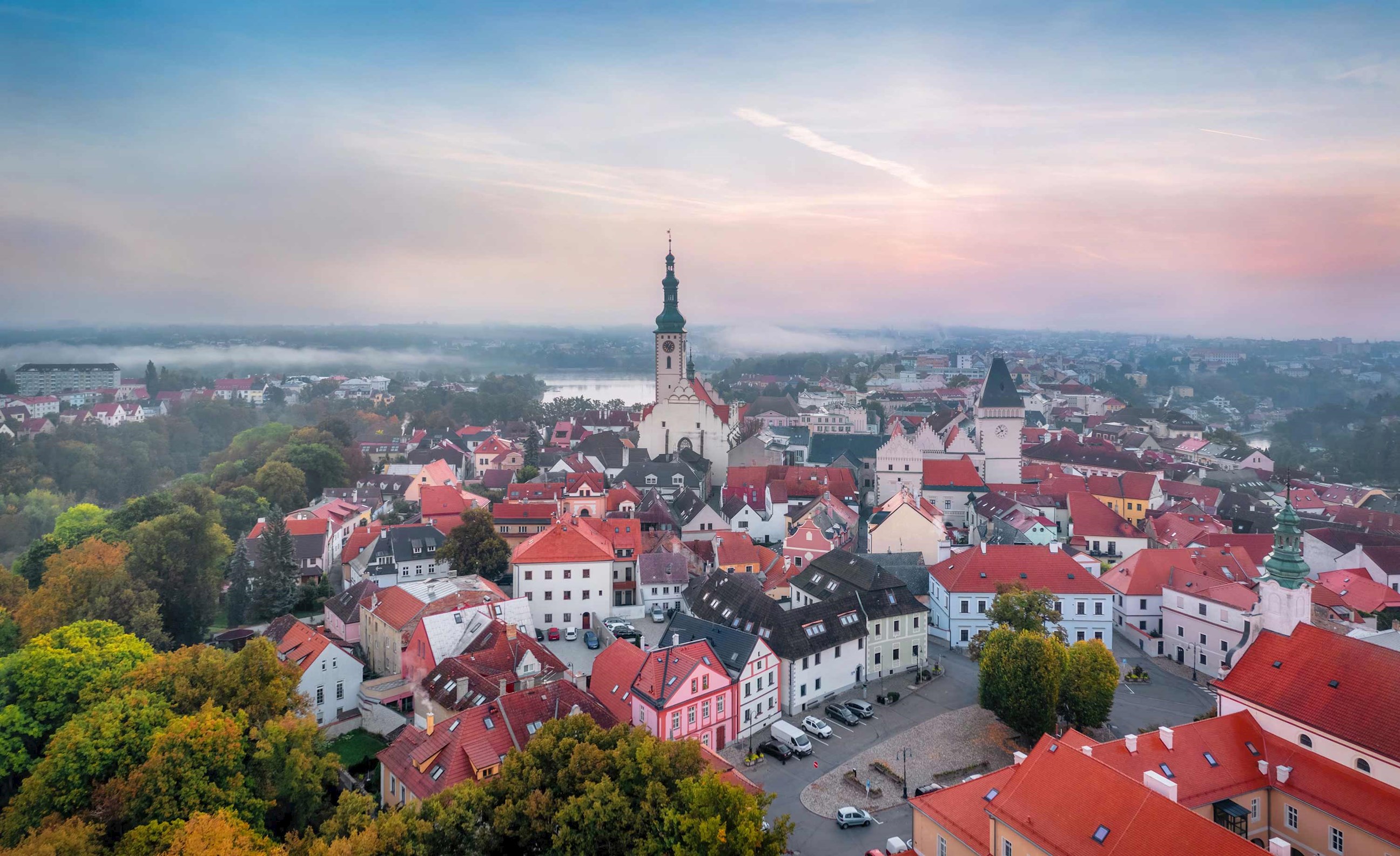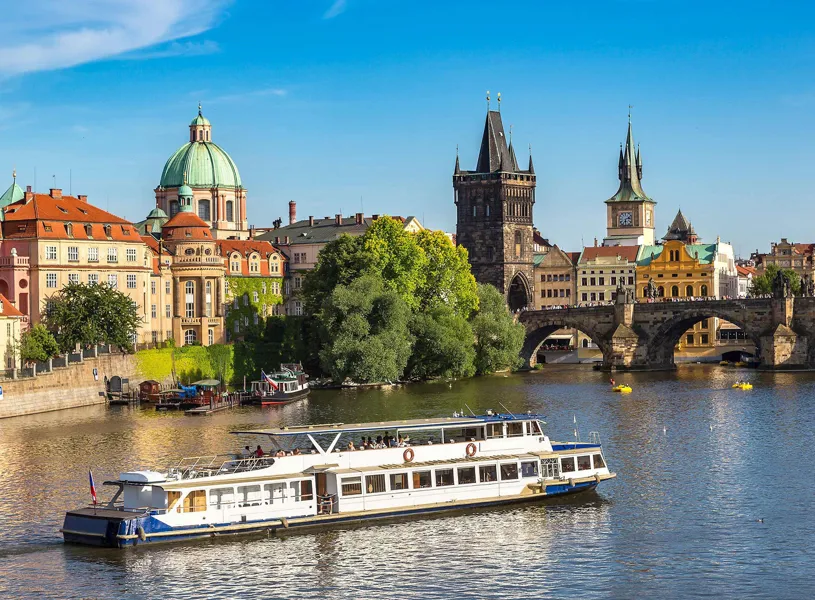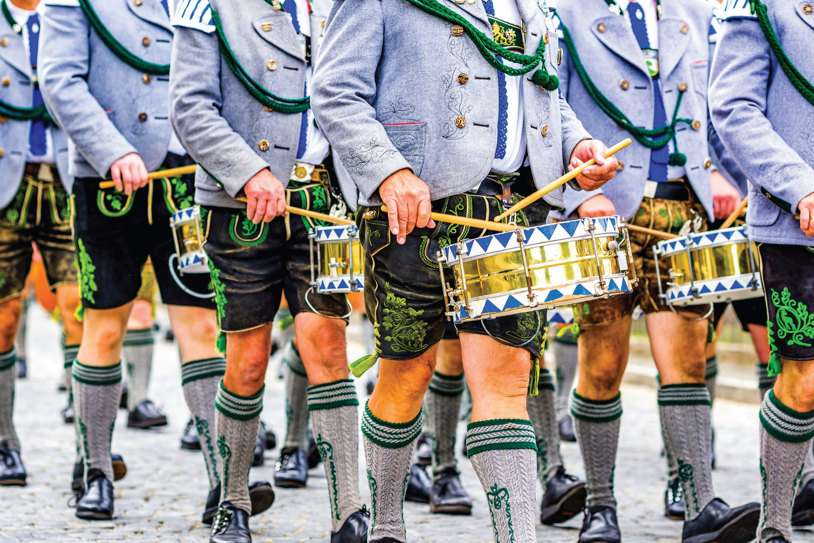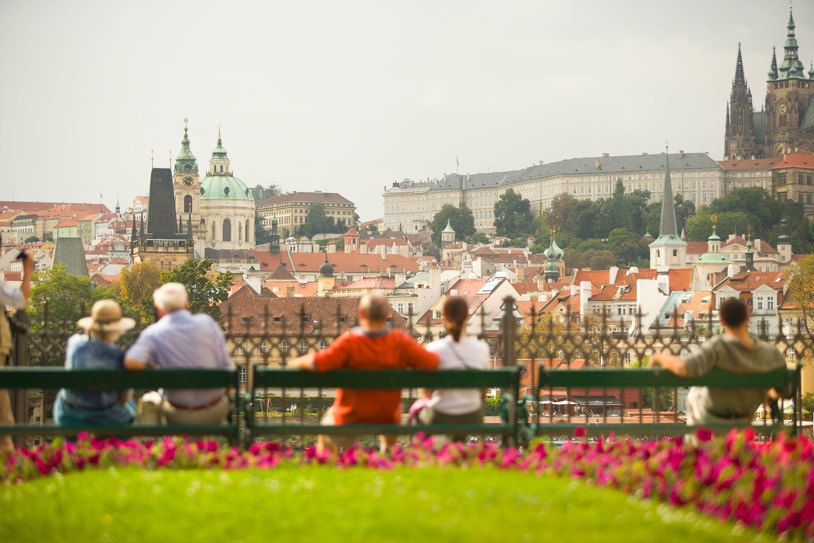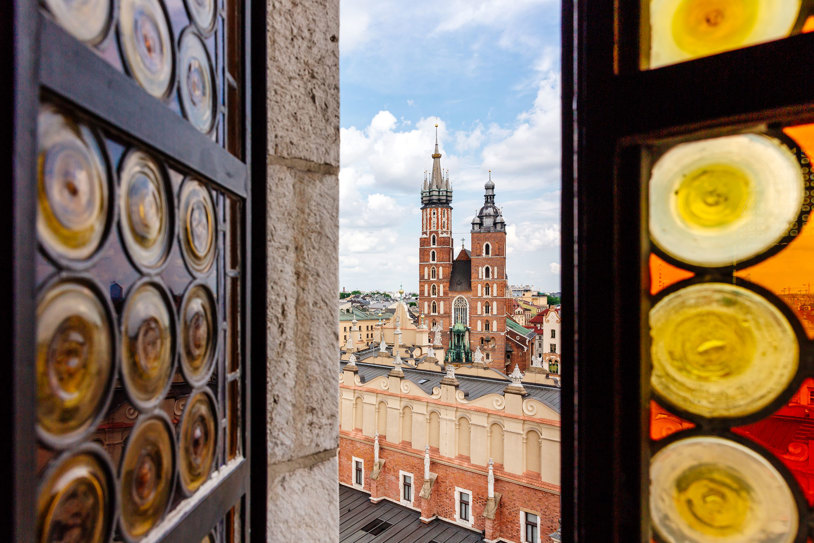
Best Value Tours
If you like hassle free travel with everything handled for you – looking to meet great people, eat great food, enjoy great sightseeing, and have immersive experiences, Trafalgar is for you. From the iconic not-to-be-missed to one-of-a-kind local experiences, including Be-my-Guest dining and stays with stories, you’ll connect deeper to your destination, and every tour has at least one MAKE TRAVEL MATTER immersive impact experience offering you the chance to dive into culture and community.
A jam-packed Bohemian trip showcasing the stories of central Europe. Learn about its colorful folklore and the tragedies of war as you visit the heart of Old Town Kraków, slice through the Carpathians and see all the highlights of Prague, Budapest and Vienna.
Low Deposit & Flexible Booking Low Deposit from $200 + no change fees See flexible booking terms >
Best Value Why touring is the easiest way to travel Learn more >
Current Entry Requirements Check your destination View Entry Guide >
Select your date
Special Departure
Included Highlights
Top rated highlights
Learn more about the landmarks, history and culture that makes your destination special.
About this trip
What to expect
Optional Experiences
Sign up on tour for additional experiences that have been curated by your Travel Director from their own in-depth local knowledge.
Compare similar tours
Eastern Europe
- Official Language(s) used across in Eastern Europe: Polish is the official language of Poland, Hungarian is the official language of Hungary, Slovak is the official language of Slovakia, Serbian is the official language of Serbia, Romanian is the official language of Romania, Bulgarian is the official language of Bulgaria, Lithuanian is the official language of Lithuania; Bosnian, Croatian, Serbian are the official languages of Bosnia and Herzegovina, Croatian is the official of Croatia, and Latvian is the official language of Latvia.
- Currency used in Balkans: The Hungarian Forint (HUF) is used in Hungary, the Polish Złoty is used in Poland, the Euro (€) is used in Slovakia, Lithuania and Latvia, the Serbian Dinar is used in Serbia, the Bosnian Convertible Mark (BAM) is used in Bosnia and Herzegovina, Bulgarian Lev (BGN) is used in Bosnia, and the Romanian Leu (RON) is used in Romania, and the Croatian Kuna (HRK) is used in Croatia.
- Capital Cites: Warsaw (Portland), Budapest (Hungary), Bratislava (Slovakia), Belgrade (Serbia), Bucharest (Romania), Sofia (Bulgaria), Vilnius (Lithuania), Sarajevo (Bosnia and Herzegovina), Zagreb (Croatia), and Riga (Latvia)
- Time Zone(s) in Balkans: Croatia, Hungary and Bosnia and Herzegovina use Central European Time Zone (CET), Central European Summer Time (CEST) and Bulgaria and Romania use Eastern European Time (EET), Eastern European Summer Time (EEST)
Eastern Europe passport, visa, and entry requirement information for US citizens.
- Passport: Your passport should have at least two blank pages for entry stamps. Your passport is valid for at least six months beyond the conclusion of your trip
- Visa Requirement: A visa is not required to enter Balkans
- Entry Requirements: You can see the most up-to-date entry requirements for the destination(s) you’ll visit on tour by going to getours.com/travel-requirements-restrictions.
Twin Room All listed pricing in the brochure and website is per person based on two people sharing a twin room (a room with 2 twin size beds). A double bed can be requested at time of booking if preferred.
Solo Supplement If you are traveling alone and require a single room, there will be an additional Solo Room Supplement added to your price.
Triple Room Rooms that sleep 3 people are available on some itineraries. The third bed is typically a pull out or cot.
Poland has a temperate climate with four distinct seasons. Summers are generally mild to warm, with average temperatures ranging from 20-25°C (68-77°F). Winters are cold, with temperatures averaging around 0 to -5°C (32 to 23°F), and snowfall is common, especially in the eastern regions. Spring and autumn offer mild temperatures, with blooming flowers in spring and colorful foliage in autumn. Rainfall is evenly distributed throughout the year, with slightly wetter months during the summer. Poland's climate can vary across regions, with the Baltic coast experiencing maritime influences, while the southern areas have a more continental climate with greater temperature fluctuations.
Hungary has a temperate continental climate with distinct seasons. Summers are warm to hot, with average temperatures around 25-30°C (77-86°F), and occasional heatwaves can lead to higher temperatures. Winters are cold, with temperatures averaging around 0 to -5°C (32 to 23°F), and frosty conditions are common. Spring and autumn offer mild and pleasant temperatures, with blooming flowers in spring and colorful foliage in autumn. Rainfall is relatively evenly distributed throughout the year, with slightly more precipitation in the summer months. Hungary also experiences occasional thunderstorms during the summer season.
Slovakia has a temperate climate with four distinct seasons. Summers (June to August) are generally warm with temperatures averaging around 20 to 25°C (68 to 77°F). Winters (December to February) are cold, with temperatures often dropping below freezing, especially in the mountainous regions. Snowfall is common during the winter months, making it a popular destination for winter sports enthusiasts. Spring (March to May) and autumn (September to November) bring mild and pleasant weather, with temperatures ranging from 10 to 15°C (50 to 59°F). Precipitation is relatively evenly distributed throughout the year, with slightly wetter summers. The mountainous terrain can influence local microclimates, with variations in temperature and precipitation across different regions of the country.
Serbia has a moderate continental climate with four distinct seasons. Summers (June to August) are generally hot and dry, with temperatures often exceeding 30°C (86°F). Winters (December to February) can be cold, with temperatures occasionally dropping below freezing, especially in the northern regions. Snowfall is common during the winter months, particularly in the mountainous areas. Spring (March to May) and autumn (September to November) are mild and pleasant, with fluctuating temperatures and moderate rainfall. The climate varies across the country due to its diverse geographical features, with the southern regions experiencing a more Mediterranean influence and the northern areas having a stronger continental climate.
Romania's climate is predominantly temperate, with four distinct seasons. Summers (June to August) are generally warm and sunny, with temperatures ranging from 25°C to 35°C (77°F to 95°F). Winters (December to February) can be cold, with temperatures often dropping below freezing and snowfall in many regions. Spring (March to May) and autumn (September to November) are mild and pleasant, with fluctuating temperatures and occasional rainfall. The Carpathian Mountains influence the climate, bringing cooler temperatures and more precipitation to the central and western parts of the country. The coastal regions along the Black Sea experience a more moderate maritime climate with milder winters and hotter summers compared to the inland areas.
Bulgaria has a diverse climate influenced by its location between the Black Sea and the Balkan Mountains. The climate is mainly continental, with cold winters and hot summers. Coastal regions have a milder maritime climate with cooler summers compared to the inland areas. Winter temperatures can drop below freezing, and snowfall is common, especially in the mountainous regions. Summers are generally dry and sunny, with temperatures often exceeding 30°C (86°F). The country experiences moderate precipitation, with more rain in the spring and autumn months.
Lithuania has a temperate maritime climate with four distinct seasons. Summers (June to August) are mild and pleasant, with average temperatures ranging from 16°C to 22°C (61°F to 72°F). Winters (December to February) can be cold, with temperatures often dropping below freezing, and snowfall is common. Spring (March to May) and autumn (September to November) are transition seasons with mild temperatures and moderate rainfall. The country's proximity to the Baltic Sea moderates the climate, leading to milder winters and cooler summers compared to other inland areas at similar latitudes. However, weather conditions can vary from year to year due to the influence of weather systems coming from both the sea and the continent.
Bosnia and Herzegovina has a diverse climate due to its varied geography. In the northern regions, the climate is continental with hot summers and cold winters, experiencing occasional snowfall. In the southern areas, the climate is Mediterranean, with mild winters and hot, dry summers. The central regions have a mixture of these two climates. Spring and autumn are generally mild and pleasant throughout the country. Rainfall patterns vary, with more precipitation in the mountainous areas and less in the lowlands.
Croatia has a diverse climate, with three main regions: coastal, inland, and mountainous. The coastal regions, including cities like Dubrovnik and Split, have a Mediterranean climate, characterized by hot, dry summers with temperatures ranging from 25°C to 30°C (77°F to 86°F), and mild winters averaging around 10°C (50°F). Inland areas, such as Zagreb, have a continental climate with hot summers and cold winters. Summer temperatures can reach 30°C (86°F) or higher, while winter temperatures can drop below freezing. The mountainous regions, like the Dinaric Alps, experience colder and harsher winters with heavy snowfall, making them ideal for winter sports. Rainfall is generally higher along the coast and decreases inland, with the wettest months being October and November.
Latvia has a temperate maritime climate with four distinct seasons. Summers (June to August) are generally mild, with average temperatures ranging from 17°C to 20°C (63°F to 68°F). Winters (December to February) can be cold, with temperatures often dropping below freezing, and snowfall is common. Spring (March to May) and autumn (September to November) are transitional seasons with mild temperatures and moderate rainfall. The proximity of the Baltic Sea influences the climate, leading to cooler summers and milder winters compared to inland areas at similar latitudes. However, weather conditions can be variable and are affected by both maritime and continental air masses.
On-Tour Luggage & Carry-On Bag Size Limits
Luggage: Each guest traveling may bring one suitcase no larger than 30” x 18” x 10" and weighing no more than 50 lb
Carry-On Bag: *Restricted to one piece per person, not to exceed 12” x 11” x 6”
- *Please note: A "carry-on bag" on a tour coach is not the same as a "carry-on" for a flight. Because our coaches have large windows to enjoy the view, there is minimal space to store large items securely overhead or under the seats. A "carry-on bag" may be a soft-sided daypack, purse, backpack, tote bag, or the like. Because we value our guests' safety, small rolling suitcases or bags with telescopic handles are not permitted. In order to guarantee a smooth trip, guests are not permitted to store an additional "carry-on" bag beneath the coach with the luggage.
So your driver and any hotel porters can safely lift and transport your suitcase throughout your vacation, we strongly recommend that you test the weight of your baggage prior to travel. You should be able to lift and comfortably transport it for short distances.
Baggage allowances vary from airline to airline, and you should check with your chosen carrier for details prior to travel.
Packing Tips for Your Tour
Packing for a guided tour will vary depending on the duration of the trip, the time of year, and the activities planned. Here is a general packing list to help you get started:
Passport and Travel Documents: Ensure you have your passport, travel insurance, and any necessary travel documents.
Clothing:
- Comfortable walking shoes: Cobblestone streets and uneven terrain require comfortable footwear.
- Lightweight, breathable clothing: Pack clothes suitable for the season. Bring a mix of short-sleeved tops, lightweight pants or skirts, and a few long-sleeved options for cooler evenings for the summer months, and long-sleeved and heavier layers for early Spring, Fall, and Winter.
- Layers: It's advisable to bring a light jacket or sweater and a scarf for layering, especially in Spring or Fall.
- Nice evening wear: You may wish to wear a dressier outfit if you plan on dining in an elegant restaurant, for example. Smart-casual clothes are usually acceptable for all included daytime and evening activities throughout your tour.
- Rain Gear: Depending on the season and the countries you're visiting, it's a good idea to pack a compact rain jacket or umbrella.
Sun Protection:
- Hat, sunglasses, UV-protective clothing.
- Sunscreen with high SPF. If you're visiting any coastal areas, bring reef-safe sunscreen formulated without harmful chemicals known to be damaging to coral reefs and marine life. Traditional sunscreens often contain ingredients like oxybenzone and octinoxate, which have been found to contribute to coral bleaching and negatively impact marine ecosystems. Look for sunscreens with certifications such as "Reef Safe," "Coral Safe," or "Ocean-Friendly" to ensure they are environmentally friendly.
Medications and First Aid:
- Any prescription medications you need. (See more below under Health & Wellness)
- Basic first aid kit with adhesive bandages, antiseptic wipes, pain relievers, etc.
Toiletries:
- Travel-sized toiletries, including shampoo, conditioner, soap, and toothpaste.
- Travel towel (quick-drying and compact).
- Hand sanitizer and wet wipes.
- A washcloth and carry bag (often not available in hotels abroad).
Electronics:
- A camera: You’re traveling to see extraordinary scenery and sites. So that you don't miss a single moment, bring a trustworthy camera. Check out our travel photography tips for capturing the best photos of your trips. If you feel comfortable, you can also try the camera on your phone. However, if you want to zoom in or capture moving objects, a camera might be your best bet.
- Mobile phone.
- Chargers for each electronic you bring.
- Travel adapter and/or voltage converter
- Portable power bank for charging devices on the go.
- Small travel hair dryer (make sure you have the correct converter and adapter).
Miscellaneous:
- A travel-friendly daypack or bag to carry your essentials during excursions.
- Insect repellent.
- Reusable water bottle. At GET, we’re all about caring for our planet, and with that in mind, we always recommend that you pack a reusable water bottle for your trip. Bringing your own reusable water bottle or asking for tap water at restaurants means you can make a difference by reducing your vacation plastic waste.
- A small travel alarm.
- A travel iron if you like your clothes to be pressed.
- A travel pillow.
Optional:
- Scarf or shawl for visiting religious sites or to cover up in conservative areas.
- Light sleepwear.
- A new, blank journal to document your trip. Don't know your travel journal style? Find out here!
- Ziplock bags (storing snacks, toiletries, and keeping things organized).
Remember to pack light and versatile items that can be mixed and matched for different outfits. Laundry facilities are often available, or you can have your clothes laundered at hotels during your trip. It's also a good idea to pack a small bag or backpack to bring on the coach for day trips and excursions, leaving your larger luggage at the hotel.
Electricity
American appliances run on 110-120 volts at 60 Hz, while European appliances run on 220-230 volts at 50 Hz.
As a result, American appliances designed for use in the United States (typically 120 volts at 60 Hz) may not be directly compatible with the higher voltage used in European countries. Plugging a 120-volt appliance into a 220-240-volt outlet without the appropriate voltage converter or transformer can cause damage to the appliance or pose safety risks.
If you plan to bring American appliances to Europe, you will need a voltage converter or transformer to change the voltage to 220-240 volts from 110 volts. Additionally, you will likely need a plug adapter to fit the American-style plug into the European power outlets. All of Europe operates on the same two round-pronged outlets (Type C).
It's important to note that not all appliances are compatible with voltage converters, so it's essential to check the labels or user manuals of your devices before using them with a voltage converter. Some electronic devices, such as laptops, smartphones, and camera chargers, are dual voltage and can support 120V and 220-240V, so they may not require a voltage converter, but a plug adapter will still be necessary.
To avoid any issues with electrical compatibility during your travels, consider purchasing appliances specifically designed for the voltage used in the region you'll be visiting or use appropriate voltage converters and plug adapters to ensure the safe operation of your American appliances in Europe.
We recommend purchasing an adapter with a voltage converter so you can pack less. And to pick up any necessary adapters or converters for your electronic devices before departing on your guided tour and bringing them with you.
Hair Dryers in Your Hotel
Hair dryers are common accessories in hotels. Should you want to bring your own, though, you will need to bring an adapter and voltage converter or make sure it is dual voltage by checking the label for INPUT AC 120V - 240V or a switch that can be set to 125V or 250V. Many devices have this feature, so it's worth checking before you travel. If you need a hair dryer during your trip but can't find one in your hotel room, you can inquire with the hotel staff. Many hotels will be able to provide a hair dryer upon request, either at the front desk or through housekeeping.
Air Conditioning
Air conditioning is commonly available in European hotels, restaurants, and public spaces, especially in major cities and tourist areas, but it is worth noting that the settings will differ from what you are used to in the USA.
However, it's important to note that not all accommodations or historic buildings may have air conditioning, particularly in more traditional or rural settings. Most hotels in Europe can provide a portable fan for additional room cooling if requested. Your Travel Director will be on hand to assist you throughout your trip.
Traveling by coach
Our modern air-conditioned coaches have been selected with your comfort in mind. Your Travel Director will familiarize you with all the onboard features, including a washroom fitted for your convenience and comfort. Regular stops are made to stretch your legs, take refreshments, fill up your water bottles, and use the facilities.
Airport transfers
Airport transfers to and from the airport on the first and last days of your tour are complimentary only if you are traveling on a tour operated by Trafalgar, Insight Vacations, or Luxury Gold, and your flight times coincide with the shuttle-coach transfer timings. Learn more about Airport Transfers here.
To enable you to personalize your tour experience, you will find a number of Optional Experiences designed to complement the itinerary. These are designed to offer a deeper insight into the culture and character of the areas to be visited and provide some wonderful highlights to your travels. The optional program is designed to let you experience more of what interests you and to get the most from your vacation without replacing or overlapping with anything included in an itinerary.
The majority of Optional Experiences will be offered to you by your Travel Director at the beginning of your trip. Some may be subject to change, depending on the time you are traveling or local circumstances, including weather and days of the week. Your Travel Director will provide further information.
Usually, most Optional Experiences will be priced in the local currency, but please read through the details of individual optional experiences for specific information. Exact payment options will be advised locally by your Travel Director/Local Representative for each Optional Experience, but in many cases, cash, Visa, MasterCard, and American Express are all accepted.
It is recommended to have travel insurance that covers medical expenses while abroad.
In order to ensure a healthy and enjoyable trip, we strongly suggest that you pack a plentiful supply of any medication you may need while on vacation. Here’s what you need to know about traveling with medications.
Prior to traveling, please notify GET of any disability requiring special assistance or any specific dietary needs that you may have, and we will strive to accommodate these.
It's essential to ensure that your routine vaccinations are up-to-date before traveling to any destination. Routine vaccinations may include vaccinations for measles, mumps, rubella, diphtheria, tetanus, pertussis, polio, and influenza.
When traveling with GET, baggage handling at hotels, service charges, and tips for hotel wait staff (for included meals) will all be taken care of by your Travel Director. There are, however, a few instances where individual tipping is welcome.
Local Specialists
It is customary to show appreciation for the insights, stories, and know-how shared with you by the Local Specialists, and we suggest a gratuity equivalent to $1.00-$2.00 USD per person per half day.
Your Coach Driver and Travel Director
The trip cost does not include gratuities for your Travel Director and Driver. At the end of your trip, you may express appreciation to your Travel Director and Driver for their excellent service and the personal attention you received. Gratuities are given at the discretion of each guest, and a suggested amount per person/per day is listed in your travel documents.
For your convenience and ease, there is an option to pre-pay gratuities for the Travel Director and Driver at the time of booking.
Hotel services
It is customary to tip hotel staff for room service delivery if the charge has not already been added to the bill. Where ice machines are not available, and you receive ice from the bar, a small tip to the bartender is always appreciated.
Your GET Wishlist
Reviews





